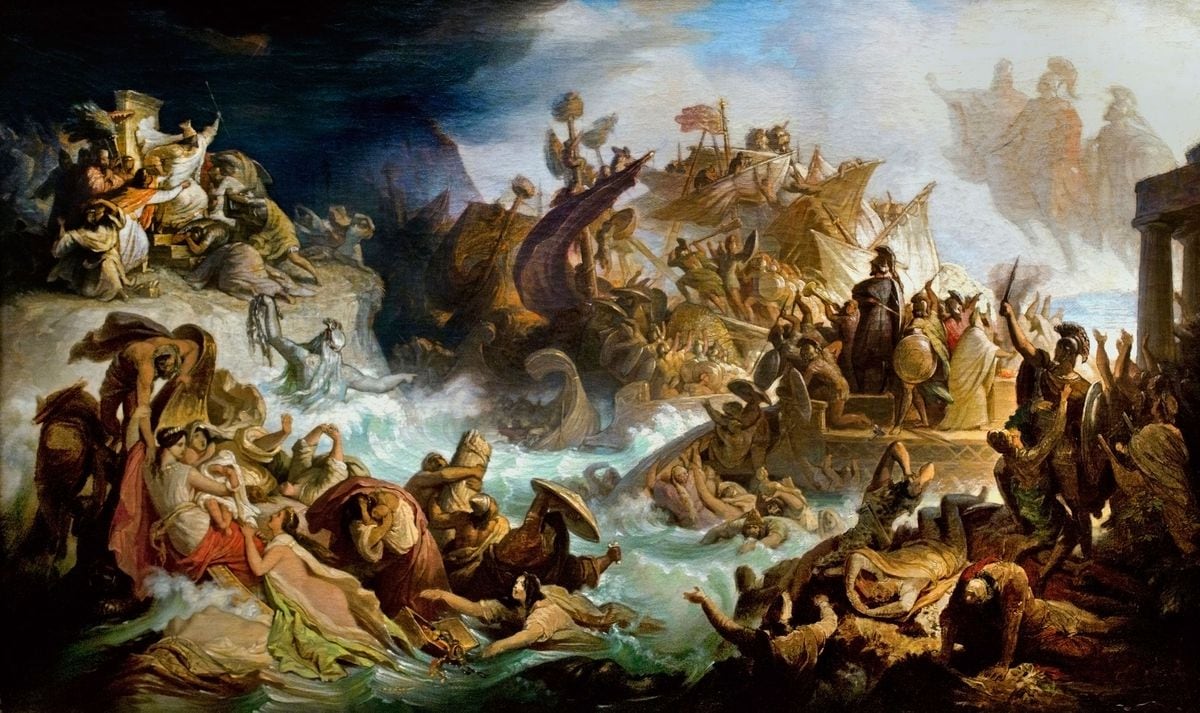As we look at the world, we grasp more than just a chaos of things. We recognize trees, houses, and clouds despite their myriad shapes and varieties. Our mind is capable of grouping an infinite number of images into a concept. Aristotle spoke of categories, and today's linguists define this process as compositional generalization. A key skill in the development of language, where artificial intelligence stumbles, and which perhaps brings us closer to what is essentially human. However, this neural feat also has its dangers, especially when applied to people: generalization, simplification, the tendency to imprison others in our hermetic mental lasts.
In ancient Greece, theatre was born to debate in public about tensions and the struggle of wills. The tragedy staged ethical and military conflicts, those fierce disputes where the most tempting thing is to refuse to understand the motives of the adversary. In the beginning, however, an unsuspected text emerged: The Persians, by Aeschylus, the first surviving European play, and the only extant one on a historical subject. During the author's lifetime, the Persian Empire tried several times to invade that swarm of tiny cities that was Greece. In Athens they felt the constant threat of this powerful adversary to their democracy and their freedom. Aeschylus fought on several battlefields, including Marathon, where his brother fell. War was very different in those days: without aviation or missiles, they faced each other face to face. The combatants looked into each other's eyes as they plunged spears and swords into the flesh of the enemy, mutilated bodies, stepped on corpses, heard death howls, stained themselves with mud and viscera.
With the Greek victory still fresh in his memory, Aeschylus recounted the bloody battle of Salamis. He could have written a patriotic pamphlet, but the veteran poet decided to be bold: he adopted the enemy's point of view. The action takes place in Susa, the Persian capital, and no Greek character takes the floor. It begins with the arrival of a messenger on the palace esplanade to announce defeat, and ends with King Xerxes returning in tatters, his arrogance trampled on and a useless butchery behind him. The look is unusual: it does not describe the Persians as the embodiment of evil or as born criminals. Aeschylus depicts the impotence of the elderly counselors who opposed the war and were ignored, the anguish of those waiting at home for the return of their loved ones, the internal divisions between falcons and doves of the empire, the pain of widows and mothers, the calamities of soldiers dragged to the slaughterhouse by the megalomania of their king. It is fascinating to think that Aeschylus, after fighting the Persians hand-to-hand, looking them in the eye, and after seeing how they killed his brother in combat, brought to the stage the suffering of the other side, its nuances and motives, without turning everyone into evil culprits.
The philosopher Emmanuel Lévinas, whose family was almost wiped out in the Holocaust, said that the face of the other—the different—defines the beginning of ethics: "The epiphany of the face introduces humanity." In times of dilemma and conflict, there is no more difficult—and perhaps more essentially human—exercise than to ask oneself about one's adversary's reasons and emotions. Recognize that the dividing line between barbarism and civilization is not a territorial border, but an oscillating ethical line within each country, each group, each individual. Refute the mirage of apparent unanimity. Deceived by this fallacy, we view strangers, enemies, or foreigners as monolithic groups with clear hostile positions. We fit others into a unique mold that justifies our enmity, when even we ourselves fail to agree on our own inner contradictions and polyphonies. Perhaps living together requires us to dare to discover a new territory: the face of those who are not us. Alerted to the harms of our prejudices, in Greek theatre we learned that all people are exceptions to a non-existent rule.
Subscribe to continue reading
Read without limits
Read more
I'm already a subscriber
_

